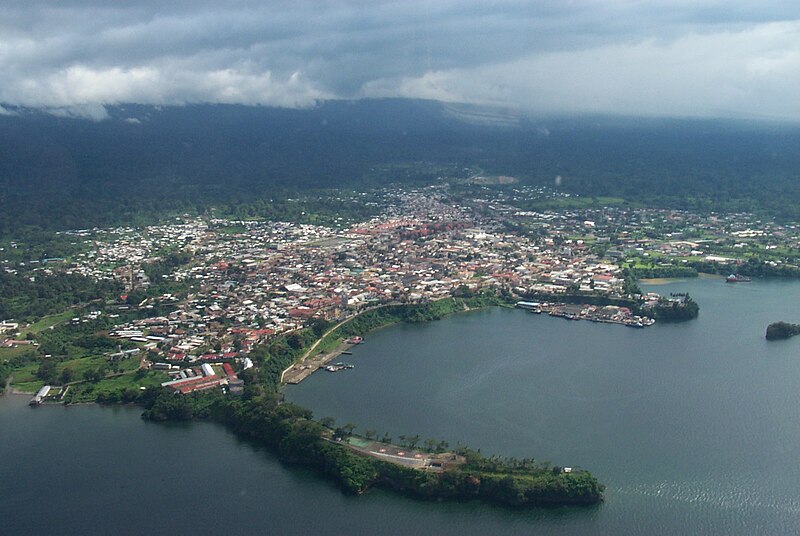Difference between revisions of "Adopting from Equatorial Guinea"
m (→SOURCE) |
(→Hague Convention Information) |
||
| Line 20: | Line 20: | ||
=Hague Convention Information= | =Hague Convention Information= | ||
| − | Equatorial [[Guinea]] is not party to the Hague Convention on Protection of Children and Co-operation in Respect of Intercountry [[Adoption]] (the Hague [[Adoption]] Convention). Intercountry adoptions of children from non-Hague countries are processed in accordance with [http://www.uscis.gov/iframe/ilink/docView/SLB/HTML/SLB/8cfr.html 8 Code of Federal Regulations, Section 204.3] as it relates to orphans as defined under the [ | + | Equatorial [[Guinea]] is not party to the Hague Convention on Protection of Children and Co-operation in Respect of Intercountry [[Adoption]] (the Hague [[Adoption]] Convention). Intercountry adoptions of children from non-Hague countries are processed in accordance with [http://www.uscis.gov/iframe/ilink/docView/SLB/HTML/SLB/8cfr.html 8 Code of Federal Regulations, Section 204.3] as it relates to orphans as defined under the [https://www.uscis.gov/laws-and-policy/legislation/immigration-and-nationality-act |
| + | Immigration and Nationality Act, Section 101(b)(1)(F)]. | ||
| Line 30: | Line 31: | ||
Please visit the Department of State’s [http://travel.state.gov/content/passports/english/country.html Country Specific Information] for more information on travelling to Equatorial [[Guinea]] and the U.S. Embassy Malabo’s website for information on consular services. | Please visit the Department of State’s [http://travel.state.gov/content/passports/english/country.html Country Specific Information] for more information on travelling to Equatorial [[Guinea]] and the U.S. Embassy Malabo’s website for information on consular services. | ||
| − | |||
=Contact Information= | =Contact Information= | ||
| Line 48: | Line 48: | ||
==SOURCE== | ==SOURCE== | ||
| − | '''Intercountry [[Adoption]], Bureau of Consular Affairs. U.S. Department of State Country Information''' adoption.state.gov/country_information/country_specific_info.php?country-select=equatorial_guinea | + | '''Intercountry [[Adoption]], Bureau of Consular Affairs. U.S. Department of State Country Information''' [[adoption]].state.gov/country_information/country_specific_info.php?country-select=equatorial_guinea |
[[Category: International Adoption]] | [[Category: International Adoption]] | ||
Revision as of 14:38, 29 June 2021
Notice: As of July 14, 2014, all individuals and agencies facilitating international adoptions must be in compliance with the Intercountry Universal Accreditation Act.
The information contained on this website is for educational purposes only and is not intended to be a substitute for professional legal advice. Always seek the advice of a licensed and qualified professional. While the content of this website is frequently updated, information changes rapidly and therefore, some information may be out of date, and/or contain inaccuracies, omissions or typographical errors.
About Equatorial Guinea
Equatorial Guinea gained independence in 1968 after 190 years of Spanish rule. This tiny country, composed of a mainland portion plus five inhabited islands, is one of the smallest on the African continent. President Teodoro Obiang NGUEMA MBASOGO has ruled the country since 1979 when he seized power in a coup. To learn more, please read About Equatorial Guinea.
Hague Convention Information
Equatorial Guinea is not party to the Hague Convention on Protection of Children and Co-operation in Respect of Intercountry Adoption (the Hague Adoption Convention). Intercountry adoptions of children from non-Hague countries are processed in accordance with 8 Code of Federal Regulations, Section 204.3 as it relates to orphans as defined under the [https://www.uscis.gov/laws-and-policy/legislation/immigration-and-nationality-act
Immigration and Nationality Act, Section 101(b)(1)(F)].
Very few intercountry adoptions take place in Equatorial Guinea; as a result, laws governing intercountry adoption are inconsistently applied. Additionally, there is no designated adoption authority. All adoptions are conducted through the Ministry of Justice, Religious Affairs, and Penitentiary Institutions. U.S. citizens considering adoption from Equatorial Guinea should contact the Embassy of Equatorial Guinea in the United States for information on how to proceed. U.S. citizen prospective adoptive parents living in Equatorial Guinea who would like to adopt from the United States or from a third country, should contact the Ministry of Justice, Religious Affairs, and Penitentiary Institutions to inquire about applicable laws and procedures. See contact information below.
Caution: Prospective adoptive parents should be aware that not all children in orphanages or children’s homes are adoptable. In many countries, birth parents place their child(ren) temporarily in an orphanage or children’s home due to financial or other hardship, with the intention of returning for the child when they are able to do so. In such cases, the birth parent(s) rarely would have relinquished their parental rights or consented to their child(ren)’s adoption.
Please visit the Department of State’s Country Specific Information for more information on travelling to Equatorial Guinea and the U.S. Embassy Malabo’s website for information on consular services.
Contact Information
EQUATORIAL GUINEA’S ADOPTION AUTHORITY:
There is no designated adoption authority. We encourage you to consult with the Embassy of Equatorial Guinea to the United States for information on how best to proceed with the Ministry of Justice, Religious Affairs, and Penitentiary Institutions.
Embassy of Equatorial Guinea
2020 16th Street, NW, Washington DC 20009 Tel: (202) 518-5700 Fax: (202) 518-5252
SOURCE
Intercountry Adoption, Bureau of Consular Affairs. U.S. Department of State Country Information adoption.state.gov/country_information/country_specific_info.php?country-select=equatorial_guinea



